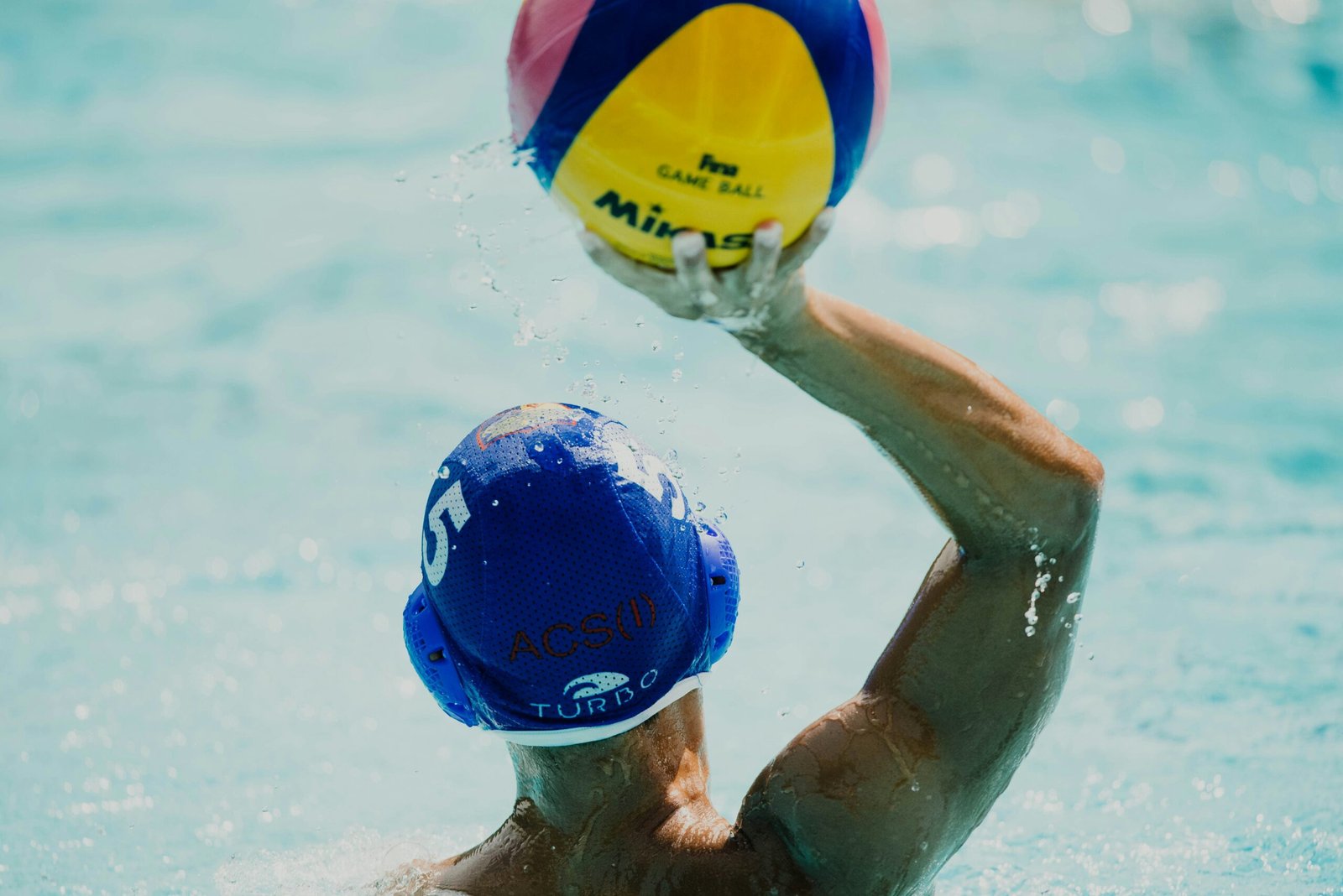
Water polo has been a part of the Olympic Games since 1900, and it has consistently captivated audiences with its intense gameplay and strategic maneuvers. The sport requires exceptional physical fitness, as players must constantly swim, tread water, and engage in physical contact with their opponents. This combination of athleticism and skill makes water polo a true test of endurance and mental fortitude.
For the 2024 Olympic Games, water polo is expected to continue its legacy as one of the most exciting and fiercely competitive events. The tournament will feature both men’s and women’s teams from around the world, each vying for the coveted gold medal. The competition will take place in state-of-the-art aquatic centers, providing the perfect stage for athletes to showcase their talents.
One of the key aspects that makes water polo so thrilling to watch is the fast-paced nature of the game. Matches are divided into four quarters, each lasting just eight minutes. During this time, teams must rely on their speed, agility, and teamwork to outmaneuver their opponents and score goals. The constant movement and strategic plays keep spectators on the edge of their seats, never knowing what will happen next.
In addition to the physical demands, water polo also requires players to possess exceptional hand-eye coordination and ball-handling skills. The ball used in water polo is smaller and more difficult to handle than a regular soccer ball, adding an extra layer of challenge to the game. Players must be able to pass, shoot, and defend with precision, all while treading water and avoiding the opposition’s attempts to steal the ball.
As we eagerly anticipate the 2024 Olympic Games, water polo promises to be a highlight of the event. Athletes from all corners of the globe will come together to showcase their skills and compete for Olympic glory. Whether you’re a die-hard fan or a casual observer, water polo is sure to deliver exhilarating moments and unforgettable performances. So mark your calendars and get ready to witness the intensity and excitement of water polo at the 2024 Olympic Games.
One of the most iconic moments in Olympic water polo history occurred during the 1956 Melbourne Games. Known as the “Blood in the Water” match, it involved a heated showdown between Hungary and the Soviet Union. Tensions were high due to the ongoing Hungarian Revolution, and the match quickly turned violent. Hungarian player Ervin Zádor was punched in the face by a Soviet player, causing him to bleed profusely. The match was eventually called off, with Hungary winning 4-0. This incident has since become a symbol of the intense rivalries and fierce competition that water polo embodies.
Over the years, advancements in technology and training have further elevated the sport. The introduction of underwater cameras has allowed spectators to witness the intricate movements and strategies employed by players beneath the surface. Coaches and athletes have also embraced data analytics, using statistics to analyze performance and gain a competitive edge.
Water polo has also become more inclusive, with the introduction of women’s water polo to the Olympic program in 2000. The women’s competition has showcased the same level of skill and intensity as the men’s, with teams from the United States, Australia, and the Netherlands consistently dominating the podium.
In recent years, there has been a push to make water polo more accessible to a wider audience. This has led to the development of new formats, such as beach water polo and mixed-gender tournaments, which aim to attract new fans and participants to the sport. These innovations have injected a fresh energy into the game, ensuring its continued growth and relevance in the Olympic movement.
Looking ahead, the future of water polo in the Olympics seems promising. As the sport continues to evolve and adapt to the changing times, it will undoubtedly captivate audiences with its blend of athleticism, strategy, and sheer excitement. Whether it’s the intense rivalries, the breathtaking goals, or the strategic maneuvers, water polo will continue to make a splash at the Olympic Games for years to come.
The Significance of Water Polo in the Olympics
Water polo holds a special place in the Olympic Games due to its unique combination of athleticism, strategy, and teamwork. The sport requires exceptional swimming skills, agility, and strength, as well as tactical thinking and coordination among teammates.
Water polo matches are intense and highly competitive, with teams battling it out to score goals while defending their own net. The physicality of the sport adds an extra layer of excitement, as players jostle for position and engage in strategic maneuvers to gain an advantage.
Moreover, water polo promotes inclusivity and diversity in the Olympics. Both men’s and women’s water polo events are held, allowing athletes from all genders to showcase their skills and compete at the highest level.
Water polo’s significance in the Olympics can also be seen in its rich history and tradition. The sport has been a part of the Olympic program since the early 1900s, making it one of the oldest team sports in the Games. Over the years, water polo has provided countless memorable moments and iconic performances, captivating audiences worldwide.
Furthermore, water polo’s presence in the Olympics serves as a platform for countries to showcase their talent and national pride. The sport has a strong following in countries like Hungary, Serbia, and the United States, where it enjoys a dedicated fan base and produces world-class athletes.
Additionally, water polo’s inclusion in the Olympics contributes to the overall diversity of the Games. While swimming and diving events primarily focus on individual performances, water polo emphasizes the importance of teamwork and collaboration. It brings together athletes from different backgrounds and cultures, fostering a sense of unity and camaraderie among participants.
Water polo’s significance in the Olympics extends beyond the sporting realm. It serves as a symbol of resilience, determination, and sportsmanship. The grueling nature of the sport requires athletes to push their limits and overcome physical and mental challenges. The values and lessons learned through water polo translate to everyday life, inspiring individuals to strive for excellence and persevere in the face of adversity.
In conclusion, water polo’s significance in the Olympics is multifaceted. It combines athleticism, strategy, and teamwork, captivating audiences with its intense matches. The sport promotes inclusivity and diversity by offering both men’s and women’s events. Its rich history and tradition, along with its ability to showcase national pride, make water polo an integral part of the Olympic Games. Moreover, water polo’s emphasis on teamwork and its values of resilience and sportsmanship contribute to the overall spirit of the Olympics. In addition to the competitive nature of the water polo matches, the 2024 Olympic Games will also bring attention to the sport’s technical advancements. With the use of advanced technology, such as underwater cameras and instant replay systems, viewers will be able to witness the intricacies of the game like never before. These technological innovations will allow fans to see the precision and skill required to execute a perfect shot or make a crucial defensive play.
Moreover, the 2024 Olympic Games will provide an opportunity for water polo to showcase its inclusivity and diversity. The sport has been making strides in promoting gender equality, and the Games will feature both men’s and women’s water polo competitions. This will not only allow for a celebration of the talent and athleticism of female water polo players but also encourage more young girls to take up the sport.
Another aspect that spectators can look forward to is the intense rivalries that will be on display during the matches. Water polo has a rich history of fierce competition between nations, and the Olympic Games serve as the ultimate stage for these rivalries to unfold. Whether it’s the long-standing battle between Hungary and Serbia or the emerging rivalry between Italy and Spain, these matches are sure to be filled with passion and intensity.
Furthermore, the 2024 Olympic Games will provide an opportunity for water polo to showcase its unique blend of athleticism and strategy. The sport requires a combination of speed, agility, strength, and tactical awareness. Players must constantly be aware of their positioning in the pool, anticipate their opponents’ moves, and work together as a team to execute game-changing plays. This blend of physicality and mental acuity makes water polo a captivating and dynamic sport to watch.
Overall, the 2024 Olympic Games will be a celebration of the sport of water polo. From the emergence of new contenders to the growth of women’s water polo, the Games will showcase the sport’s global reach and its ability to captivate audiences worldwide. With state-of-the-art venues, technological advancements, and intense rivalries, the water polo matches at the 2024 Olympic Games are sure to provide an unforgettable experience for both players and spectators alike.




